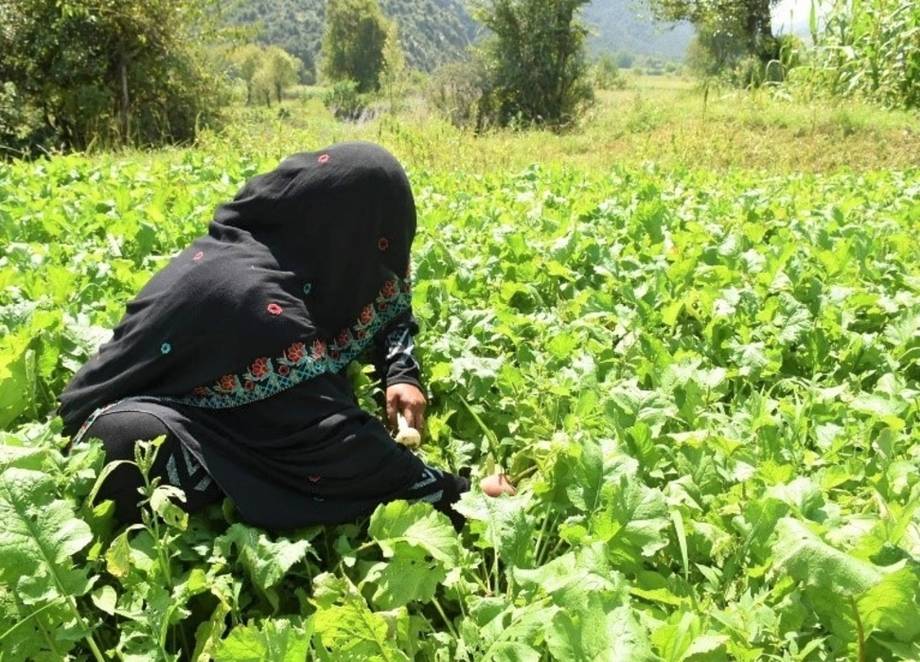A Story of ‘One Step Forward’

The role women play in agriculture is not just caring and rearing animals, nor is it just preserving domestic produce for years long, neither its mere an extra-hand in the fields. They are active contributors to the agro-economy everywhere in the world, and tribal women of Khyber Pakhtunkhwa are no less. Where the onset of COVID-19 pandemic has added to the vulnerability and struggle of the farming community in newly merged districts of Khyber Pakhtunkhwa, FAO with support from Foreign Commonwealth and Development Office in response, is taking initiatives to assist them especially, women farmers to mark their substantial role in agriculture in improved ways.
Asma, a single parent to four, has become an inspiration for many in her village Andkhel Bala, Orakzai. In an under-privilege society, there were very limited feasibilities to provide for her kids. She kept helping her father in fields to shed burden on him added by her return with kids. She ran a little household tuck-shop and dreamt of being able to provide for her kids herself, hardly she knew that the day was not far when FAO reached her community to assist with agricultural inputs.
After a successful assessment phase, Asma received 50kg of certified quality of wheat seed, packets of “Sahil” variety of tomato seed, fertilizer and a chopping machine. Field trainings and exposure visits were novel to her but she found herself convinced.
“It didn’t feel good to be burden on my family, I wanted to provide for my kids myself, being a single parent to four kids wasn’t easy. FAO helped me to do what I wanted to do. I am more than glad that I am not dependent on anyone now for my kids,” said Asma.
The opportunity was a challenge and vice-versa for Asma. She took keen interest in learning improved agriculture practices through Women Farmer Field School-FFS, participated in an exposure visit, and learned pickle preservation methodology. Resultantly, she was able to harvest her vegetable produce quite surplus to domestic consumption. The training she received through the FFS sessions to develop market linkages helped her sell her produce well.
First vegetable harvest gave her a 42,000 profit bucks from which she bought a cloth-hemming machine and started community level cross-stich shop. The shop is working well for her and from savings, she is offering more stuffs at her tuck-shop too. She smiles contentedly telling that she can feed her children and pay fee for their school.
“It was a “now or never” for me, social and cultural limitations might have tugged me back, but I gathered my strength and decided to take ‘one step forward’ towards subsistence, towards being self-sufficient and being able to feed my kids and send them to school,” says Asma.
Women farmers like Asma are an example of determination and courage essential to yield to riches from the soil. FAO is always ‘One step forward’ supporting women to grow into entrepreneurs by adopting farming as businesses that subsequently will reduce gender-based economic inequalities.
